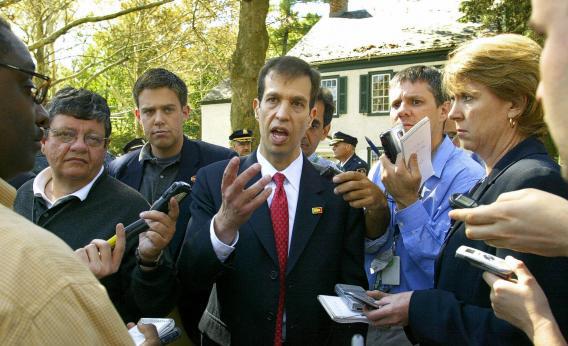Gay-marriage activists maneuvering to win referenda this year in Maine and Washington State are now working with tools from an unlikely source: a Republican firm that has played a central role in Mitt Romney’s political operation since 2002 and is now also working for top Republican super PACs.
TargetPoint Consulting has segmented the electorate in each state into 33 tiers ranked according to their predicted levels of support for gay marriage. The microtargeting project was commissioned by the nonpartisan group Freedom to Marry, which is involved in campaigns in three of the four states where gay-marriage questionns are on the ballot this year. The deal with TargetPoint was arranged in part by Ken Mehlman, the former Republican National Committee chairman and Bush campaign manager who has aided state-level gay-marriage efforts in a variety of advisory, lobbying, and fundraising roles.
The arrangement marks an unusual cross-party tactical collaboration. While it is common for political consultants to work together across party lines on issue-based projects—last year Freedom to Marry hired Obama pollster Joel Benenson and former George W. Bush pollster Jan van Lohuizen to conduct a joint survey—such partnerships are unknown in the field of data and statistical modeling. When it comes to data, the two parties (and their allies) have innovated in isolation from one another, with little intellectual cross-pollination over the last decade. To this day, analysts on both the Republican and Democratic sides have only the sketchiest understanding of the methods and techniques their opponents use to target voters.
“Our objective is to use every means at our disposal—whether left-of-center or right-of-center or not affiliated at all—in our singular pursuit to win the freedom to marry,” says Marc Solomon, Freedom to Marry’s national campaign director. “From everything we know, personal conversations are most helpful in making the case.”
In relying on Mehlman’s counsel and TargetPoint’s staff, Freedom to Marry has retained Republican pioneers in the use of microtargeting. In 2004, Mehlman contracted TargetPoint’s founder, Alex Gage, for a $3 million national project to break the electorate in clusters based on their attitudes towards Bush’s re-election, views on specific issues and campaign themes, and their individual likelihood of voting. After the campaign, Mehlman became chairman of the RNC, for which TargetPoint has been a consultant, through the 2006 elections. He now works for private-equity firm Kohlberg Kravis Roberts.
Gage and his firm have been closely involved in Romney’s campaigns since his first gubernatorial run in 2002. In 2008, Gage served as the director of strategy for Romney’s presidential campaign, and this winter his firm’s statistical models played a crucial under-the-radar role in helping him (more or less) win the Iowa caucuses. This summer, a TargetPoint vice president, Alex Lundry, took a leave of absence from the firm to develop a data-science team at Romney’s Boston headquarters. (A TargetPoint executive did not respond to an emailed inquiry today about its work with Freedom to Marry.)
At the same time, TargetPoint will be using its expertise to help Freedom to Marry’s allies locate those Maine and Washington voters they think are most friendly to their cause—one that Romney, and most of their other Republican clients, oppose.
